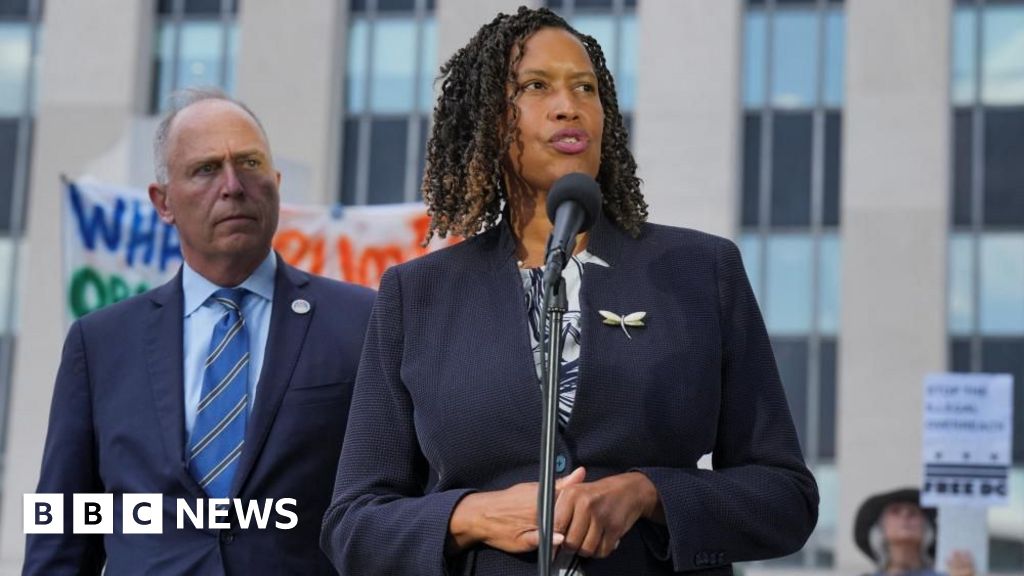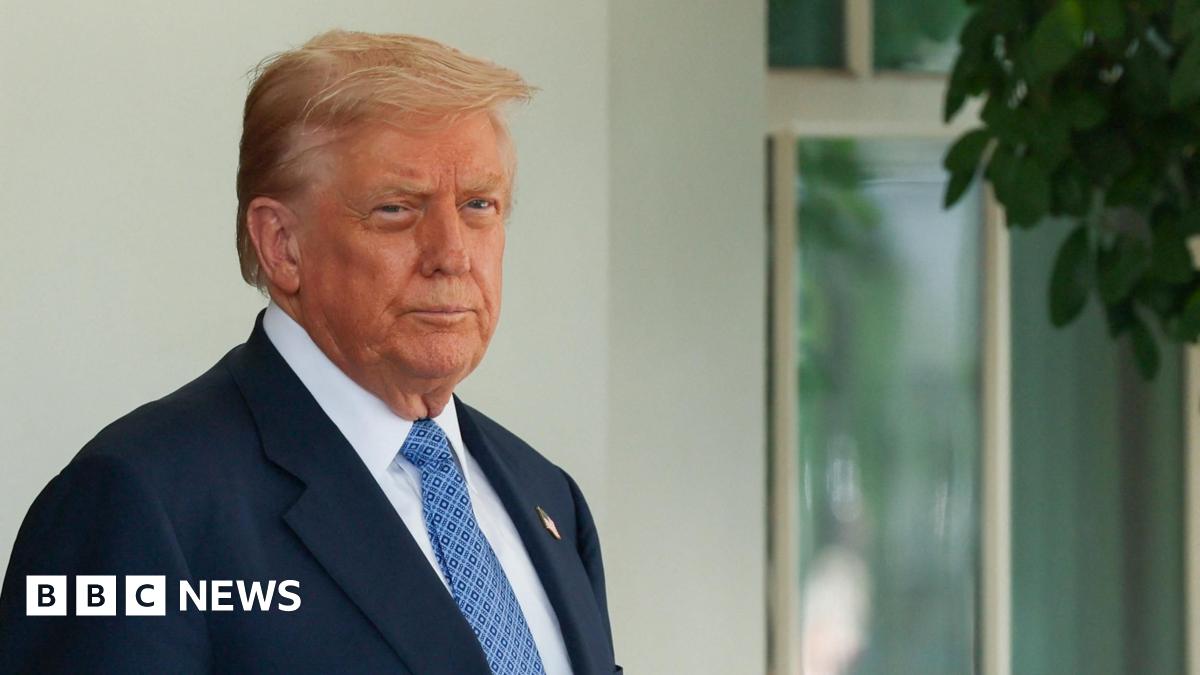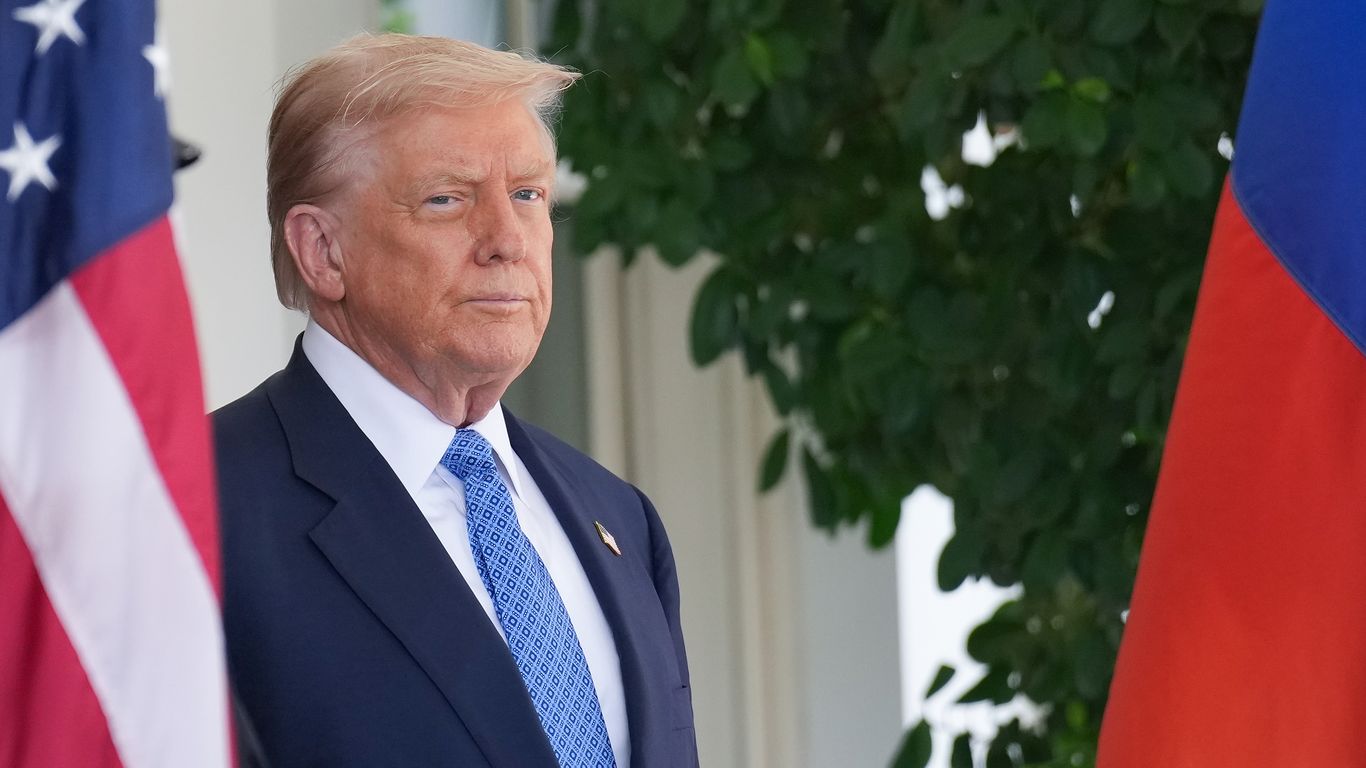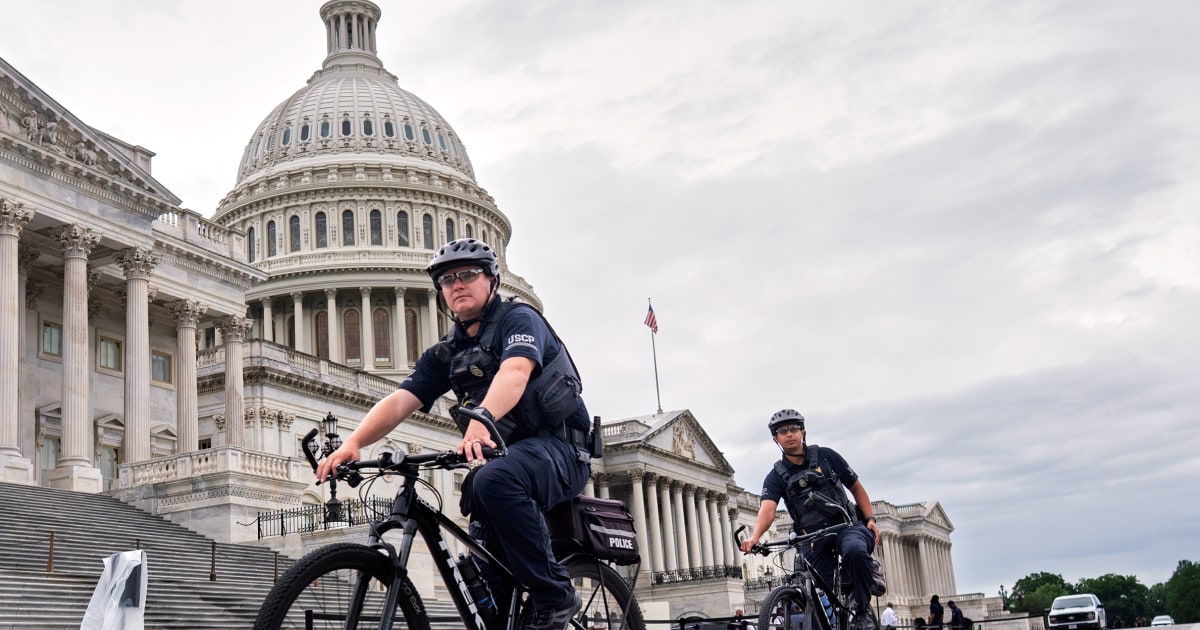Washington DC Residents Fear for Safety amid Federal Takeover of Police Department

Introduction
A recent poll conducted by the Washington Post-Schar School of Policy and Government reveals that the majority of Washington, DC residents feel less safe ever since President Donald Trump ordered the federal government to take control of the city's police department. This move has sparked concerns among the city's residents and has raised questions about the impact of Trump's actions on the overall safety of the city.
Key Details
The poll also showed that 80% of DC residents oppose the deployment of National Guard and FBI agents to patrol the city, further adding to the feeling of insecurity among the residents. Additionally, the survey reveals that many residents are concerned about the potential misuse of power and violation of civil liberties that may arise from the federal government's control over the city's police force. This has caused a divide among residents, with some supporting Trump's actions and others expressing their fears and opposition.
Impact
The tensions created by Trump's takeover of the city have led to a sense of unease and instability among residents. This has also raised concerns about the impact on the city's reputation and tourism industry. The city's mayor, Muriel Bowser, has spoken out against Trump's actions, stating that the city is capable of managing its own affairs and does not need federal intervention. The ongoing debate and uncertainty surrounding the situation have only added to the feeling of insecurity among residents.
Donald John Trump, born June 14, 1946, in Queens, New York, is an American businessman, media personality, and politician. He graduated from the University of Pennsylvania’s Wharton School in 1968 with a degree in economics. In 1971, he took over his family’s real estate business, renaming it the Trump Organization, through which he expanded into building and managing skyscrapers, hotels, casinos, and golf courses. Trump gained widespread fame as the host of the reality TV show *The Apprentice* from 2004 to 2015, which helped establish his public persona as a successful entrepreneur.
Trump entered politics as a Republican and was elected the 45th president of the United States, serving from 2017 to 2021. His presidency was marked by significant policy actions including tax cuts, deregulation, the appointment of three Supreme Court justices, renegotiation of trade agreements (notably replacing NAFTA with the USMCA), and a focus on immigration control including border wall expansion. He withdrew the U.S. from international agreements such as the Paris Climate Accord and the Iran nuclear deal, and engaged in a trade war with China. His administration’s response to the COVID-19 pandemic was criticized for downplaying the virus’s severity. Trump was impeached twice by the House of Representatives—first in 2019 for abuse of power and obstruction, and again in 2021 for incitement of insurrection—but was acquitted by the Senate both times.
After losing the 2020 election to Joe Biden, Trump challenged the results, culminating in the January 6, 2021, Capitol riot. He remains a central figure in American politics, having won the 2024 presidential election and returned as the 47th president in 2025, continuing to promote policies aimed at economic growth, border security, and military strength[1][2][3][4]. ## Overview of the Washington Post-Schar School Partnership
The **Washington Post-Schar School of Policy and Government** partnership is a collaborative effort between The Washington Post and the Schar School of Policy and Government at George Mason University. This partnership focuses primarily on conducting public opinion polls to gauge voter sentiment on various political and public policy issues. Established in 2016, it combines the Schar School's academic expertise with The Washington Post's extensive national reach.
## History and Key Achievements
- **Founding**: The partnership began in 2016, marking a significant collaboration between a major news outlet and a leading policy school.
- **Key Polls**: They have conducted numerous polls, including those analyzing voter opinions in key states during presidential elections. For instance, a recent poll surveyed over 3,500 registered voters in six states to understand the views of "Deciders" in the 2024 presidential election[2].
- **Accuracy**: The partnership has received an A+ rating for historical accuracy and methodology from *FiveThirtyEight*, underscoring the reliability of their polling data[1].
## Current Status
Currently, the partnership continues to produce impactful polls that shed light on public opinion across a range of topics. Recent polls have addressed issues such as federal law enforcement in D.C., statehood for Washington D.C., and reactions to political events like the use of military force in protests[3][4].
## Notable Aspects
- **Collaborative Approach**: The partnership leverages the strengths of both organizations, combining academic rigor with journalistic reach.
- **Influence**: Their polls often influence public discourse and political decision-making by providing timely insights into voter sentiment.
- **Relevance**: The topics they cover are diverse and relevant to current political and social issues, making their research valuable for both policymakers and the general public.
Overall, the Washington Post-Schar School partnership is a significant force in public policy analysis, offering authoritative insights into the views of the American public. ## Overview
The National Guard is a unique component of the United States Armed Forces, serving as both a state and federal military reserve. It is divided into the Army National Guard and the Air National Guard, each functioning as the primary combat reserve for the U.S. Army and Air Force, respectively[1][5]. Unlike other military reserves, the National Guard can be activated by state governors for domestic emergencies—such as natural disasters, civil unrest, or public health crises—while also being deployable overseas by the president during national emergencies or conflicts[1][2]. This dual role makes it a critical bridge between civilian life and military service, with most members serving part-time while maintaining civilian careers or education[1][7].
## History
The National Guard traces its origins to 1636 in Salem, Massachusetts, making it the oldest military organization in the U.S.[4][6]. Initially formed as local militias for community defense, it evolved into a structured reserve force integral to every major U.S. conflict since the nation’s founding[6]. The modern National Guard was formally established by the Militia Act of 1903, which standardized training and equipment across states and created a federal role for the Guard[4].
## Key Achievements
The National Guard has been pivotal in both domestic and international crises. Domestically, Guard units have responded to hurricanes, wildfires, the COVID-19 pandemic, and civil disturbances, providing essential support to local authorities[2][6]. Internationally, Guard units have deployed to conflicts in Afghanistan, Iraq, and the Balkans, as well as peacekeeping and training missions worldwide[2][5]. The Guard’s State Partnership Program also fosters military cooperation with over 100 nations, enhancing global security partnerships[5].
## Current Status and Notable Aspects
Today, the National Guard comprises approximately 430,000 members across all 50 states, Washington, D.C., and U.S. territories[1][6]. It is overs The Federal Bureau of Investigation (FBI) is a premier law enforcement agency in the United States, renowned for its role in protecting the nation from domestic and international threats. Founded on July 26, 1908, as the Bureau of Investigation, it was initially tasked with addressing land fraud and corporate malfeasance under President Theodore Roosevelt[1][2]. Over time, its mandate expanded significantly, particularly with the passage of the Mann Act in 1910, which allowed federal jurisdiction over certain moral offenses[1][4].
### History and Evolution
The FBI underwent significant transformation under J. Edgar Hoover, who became its director in 1924. Hoover implemented strict hiring standards and enhanced operational capabilities, transforming the agency into a robust investigative force[1][4]. The FBI's name was officially changed to the Federal Bureau of Investigation in 1935[5][6]. Throughout its history, the FBI has faced challenges, including concerns about potential abuses of power, but it has consistently demonstrated its value in national security and law enforcement[3][4].
### Key Achievements
The FBI has been instrumental in combating various crimes, including white-collar offenses, civil rights violations, and national security threats. Notable achievements include its role in enforcing the Espionage Act during World War I and its investigations into organized crime throughout the 20th century[2][4].
### Current Status
Today, the FBI is a sophisticated agency with over 37,100 employees, including special agents and professionals in various fields such as intelligence analysis and cybersecurity[5]. It operates in 55 field offices across the U.S. and has an international presence in 81 nations[5]. The FBI continues to evolve, addressing emerging threats like cybercrime and terrorism while maintaining its commitment to justice and integrity.
### Notable Aspects
The FBI is known for its rigorous training programs at the FBI Academy in Quantico, Virginia, and its advanced forensic capabilities at the FBI Laboratory. Its work in business and technology includes Discover related stories and their connections to this article Explore connected events with detailed insights and relationships Key entities mentioned across connected events Discover patterns and trends across related stories CNN review finds dozens of FBI witness interviews missing from Epstein files, fueling questions about transparency. Trump escalates pressure on Iran with sanctions, talks, and possible military options as negotiations resume. Exploring White House push for Israel to strike Iran first, amid worries of retaliation, casualties, and political calculations. Trump administration unveils an aggressive crackdown on healthcare fraud, freezing Minnesota funds and expanding Medicare/Medicaid integrity nationwide. Live updates on Donald Trump's state of the union address, highlighting border security, a booming economy, and executive orders.About the People Mentioned
Donald Trump
About the Organizations Mentioned
Washington Post-Schar School of Policy and Government
National Guard
FBI
🔗 Connected Events Overview
📊 Quick Insights
📅 Connected Events Timeline
👥 People Involved in Connected Events
Connected through:
🏢 Organizations & Products
🏢 Organizations
🛍️ Products
💡 Connected Events Insights
🔥 Trending Topics
Trending Blogs in Politics

Missing FBI Records Spark Epstein Files Controversy

Trump Administration Escalates Iran Pressure: Sanctions, Diplomacy, and Military Contingencies

White House Strategy: Israel Might Strike Iran First

Federal Crackdown on Medicaid Fraud: Minnesota First, Nationwide Expansion

Trump's Bold State of the Union: Live Updates on a Secure Border and Booming Economy














